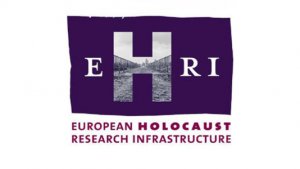Conny Kristel Fellowship Programme

The 2025 call for the Conny Kristel Fellowship Programme closes on 28 September 2025 midnight CET.
By facilitating international access to an unprecedented range of key archives and collections related to the Holocaust as well as access to archival and digital humanities expertise, the EHRI-ERIC Conny Kristel Fellowship Programme supports and stimulates Holocaust research and documentation. It is open to researchers, archivists, librarians, curators and other relevant professionals at all career stages, but we particularly welcome applications by early career practitioners such as PhD students.
Funding is available for projects relating to the Holocaust broadly conceived, including its prehistory, its aftermath, and the role of antisemitism before, during and after World War II, as well as challenges concerning the archival management of Holocaust related sources.
The Conny Kristel Fellowships are funded by the European Holocaust Research Infrastructure (EHRI), which is an independent European Research Infrastructure Consortium (ERIC). It is not possible to apply for a Conny Kristel Fellowship at an institution located in the same country as the one in which the applicant usually resides.
Stipend, duration, requirements
Conny Kristel Fellowships include a stipend towards housing and living expenses as well as reimbursement of reasonable travel costs to and from the host institution. The stipends are set at a flat-rate and provide a contribution towards the average living costs in the host country. Fellows will not be required to report or document the use of their subsistence allowance. Fellows will make their own travel arrangements and expenses will be reimbursed upon submission of payment receipts and proof of travel. Further guidance can be found here.
Successful applicants will sign a Confirmation of Fellowship Terms to accept the fellowship award. Recipients are responsible for securing visas if necessary.
Conny Kristel Fellows will have access to the research infrastructure of the host institution including access to a workspace with internet access. Fellows can choose the lengths of their stay, with a minimum of one and a maximum of six weeks. (Fellows may extend their stay at their own expense and in accordance with the host institution and visa regulations.) Various host institutions can be combined in one fellowship. A regular presence at the host institution is expected. However, visiting other archives and research institutions in the vicinity of the host institution is encouraged.
Successful applicants are expected to participate in a joint online introductory meeting where they can introduce themselves and their research and familiarise themselves with the EHRI Portal as well as other offerings of EHRI-ERIC. Upon finishing the Conny Kristel Fellowship, fellows are required to complete a short report within six weeks detailing the results of their stay and the impact upon their research/project as well as an evaluation form within 12 months. Furthermore, fellows are encouraged to contribute a post to the EHRI Document Blog.
Start dates of the Fellowship are decided jointly by the fellow and the host institution(s), but the tenure must take place before 31 December 2026.
EHRI-ERIC Conny Kristel Host Institutions
EHRI-ERIC is currently facilitating fellowship stays at one or more of the following host institutions across the distributed research infrastructure. Please note that applying for a CK Fellowship at one of these institutions does not automatically grant the right to access to a host institution; access remains subject to confirmation by the host institution after fellowships have been selected for funding.
Host institutions:
Austria (Also see the Country Report on Austria in the EHRI Portal)
The Vienna Wiesenthal Institute for Holocaust Studies (Vienna)
Centrum für Jüdische Studien (Graz)
Schloss Hartheim (Alkoven)
Belgium (Also see the Country Report on Belgium in the EHRI Portal)
Kazerne Dossin (Mechelen)
State Archives of Belgium (Brussels)
Czech Republic (Also see the Country Report on the Czech Republic in the EHRI Portal)
Masaryk Institute and Archives of the Czech Academy of Sciences (Prague)
Terezín Memorial (Terezín)
Czech National Archives (Prague)
ŽMP The Jewish Museum (Prague)
Germany (Also see the Country Report on Germany in the EHRI Portal)
Center for Holocaust Studies at the Leibniz Institute for Contemporary History (Munich)
Arolsen Archives – International Center on Nazi Persecution (Bad Arolsen)
The Federal Archives (Bundesarchiv) (Berlin, Koblenz, Freiburg and Ludwigsburg)
Fritz Bauer Institute (Frankfurt am Main)
Deutsche National Bibliothek (DNB) – German Exile Archive (Frankfurt am Main)
Israel (currently remote access only; no stipend or reimbursement) (Also see the Country Report on Israel in the EHRI Portal)
Yad Vashem – The World Holocaust Remembrance Center (Jerusalem)
The Netherlands (Also see the Country Report on the Netherlands in the EHRI Portal)
NIOD Institute for War, Holocaust and Genocide Studies (Amsterdam)
Poland (Also see the Country Report on Poland in the EHRI Portal)
Emanuel Ringelblum Jewish Historical Institute (Warsaw)
Romania (Also see the Country Report on Romania in the EHRI Portal)
The “Elie Wiesel” National Institute for the Study of the Holocaust in Romania (Bucharest)
Institute for Holocaust and Genocide Studies (Cluj-Napoca)
United Kingdom (Also see the Country Report on the UK in the EHRI Portal)
The Wiener Holocaust Library (London)
The National Archives (London)
Application
All application materials must be submitted in English via this form. (See the application form as a PDF for information; you can only submit via the previous link.)
The application must include a four to five page (1,250 to maximum 1,500 words) detailed description of the project proposal planned for the term of the fellowship that includes an explanation of which institution(s) and archival holdings are relevant for the project topic. Please consider the criteria below when writing the project proposal. In addition, applicants may include an up-to-date curriculum vitae.
Applications are reviewed by an expert panel against the following criteria:
- Quality of the project
- Does the project propose robust research questions and/or explore a pertinent professional challenge?
- Are the objectives of the project clearly defined and feasible?
- Is the methodology feasible, relevant and well explained?
- Originality and impact of the project
- Is the project original and innovative?
- Does the proposed project have a potential impact on the field?
- Match between the project and the collections and/or expertise to be accessed
- Is the need to access the collections and/or expertise to achieve the project’s objectives properly justified?
- Dissemination plans
- Are there suitable plans in place for the dissemination of the project’s outputs and/or for the application of the knowledge and expertise that was gained through the fellowship?
Applicants are strongly advised to closely consider these criteria when writing their proposal.
The 2025 call for the Conny Kristel Fellowship Programme closes on 28 September 2025 midnight CET. If you have any questions, you can contact Katharina Freise at k.freise@niod.knaw.nl.
All proposals will be evaluated for scientific excellence by an independent panel of experts. EHRI-ERIC aims to create an equal opportunity environment and thus does not discriminate on the basis of race, religion, ethnic or national origin, age, sex, gender, sexual orientation or disability.
Applicants will be informed of the outcome of their application within 2-3 months following the closing date of the call.
